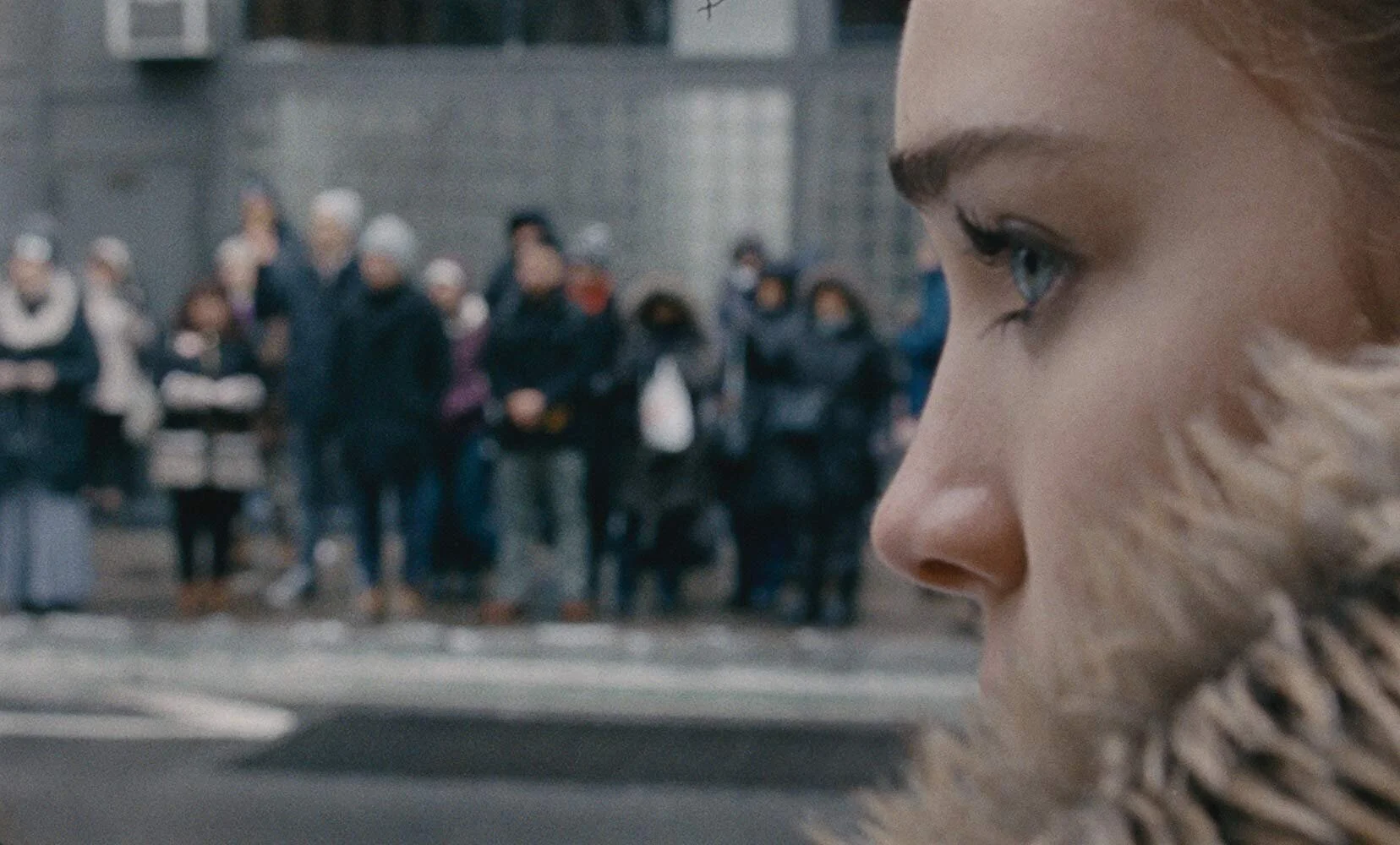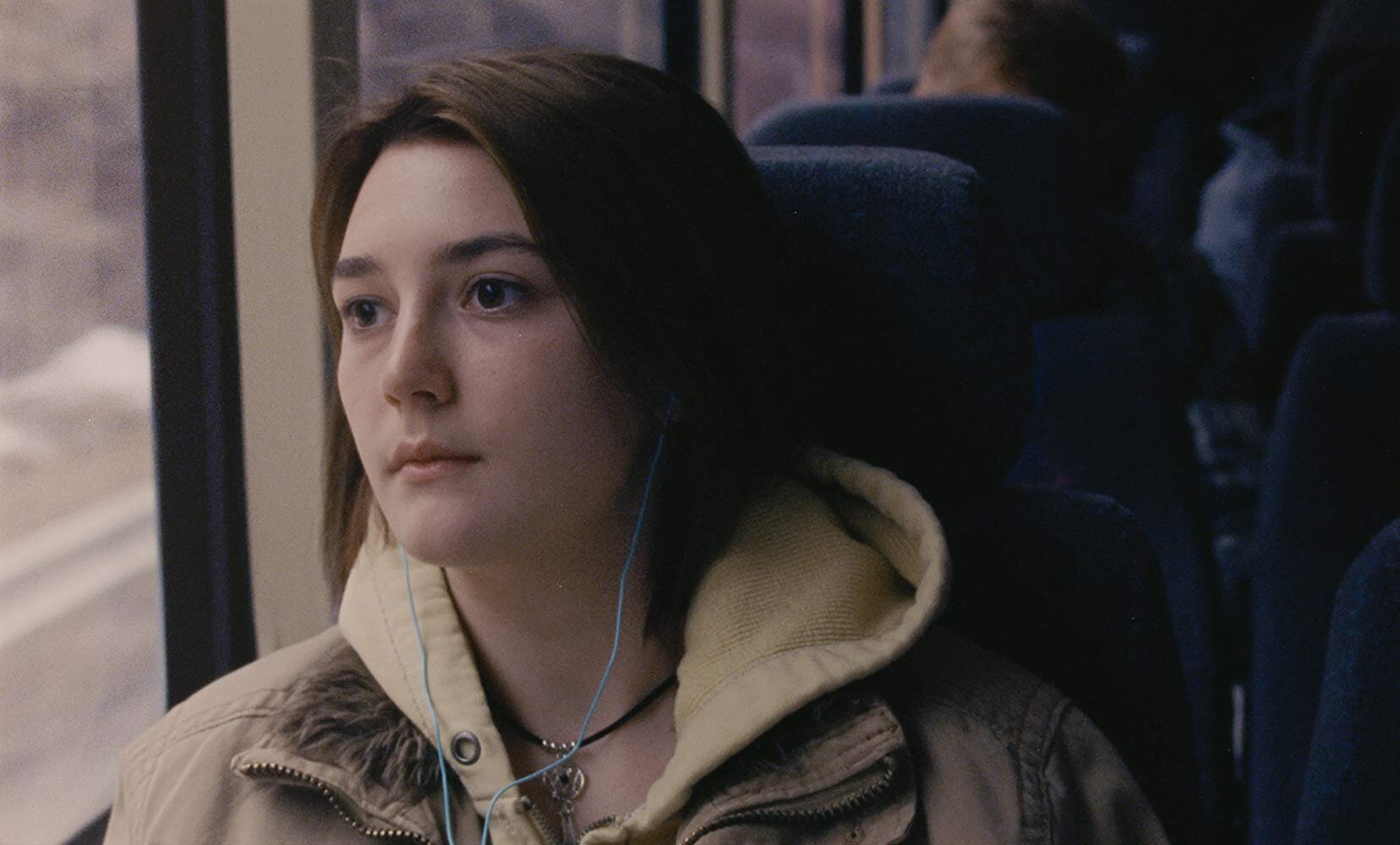Film Review: Never Rarely Sometimes Always
© 2020 - Focus Features
By Erik Nielsen
It’s been forty-seven years since the monumental Supreme Court case Roe v. Wade , which granted women the right to choose. Now, in 2020, twenty-five new abortion restrictions have been placed in 17 different states. This is the context in which we find 17-year-old Autumn (played by a wonderful Sidney Flanigan) in Eliza Hittman’s Never Rarely Sometimes Always, an incredibly tender and intimate portrait of unintended teen pregnancy and the emotional journey a young woman has to go through to get an abortion.
© 2020 - Focus Features
We spend just enough time with Autumn and her family to understand why she walks around with the weight of the world on her shoulders and why she never wants to be home. The dad (Ryan Eggold) is a heavy drinker and is unable to be supportive of his daughter. Right after a soulful performance at the school's talent show, where another kid cries out “Slut!” while Autumn is singing, we cut to a diner scene where the table is covered in empty Yuengling bottles as the dad slugs down another one. He doesn’t console Autumn after the incident and struggles to compliment her performance even after being prompted by the mom (Sharon van Etten) who is struggling to keep the two younger sisters busy. Seemingly, Autumn’s only friend is also her cousin Skylar (in a quietly star-making performance from Talia Ryder). We can tell Autumn’s a bit broken, hardened, and doesn’t reveal herself to anyone except Skylar.
© 2020 - Focus Features
The trips to the health clinic in her rural Pennsylvania town help shape the protest at the heart of the film. The clinics don’t necessarily reflect a space of health and well-being but instead the people there push an agenda down Autumn's throat. The doctor does not say abortion is a choice and immediately gives her adoption pamphlets and makes her listen to the heartbeat of the 10-week fetus without Autumn’s permission. The head physician even shows her dated home videos from pro-life doctors that attempt to persuade her decision. The clinic doesn’t feel like a place of warmth in Hittmans film but a place of judgment. Because she’s 17 and abortion is restricted in her town, Autumn needs her parents to consent to have an abortion, which this sets her off on a journey to New York City with her cousin Skylar.
© 2020 - Focus Features
For these girls, New York is a place of dreams but also the place of nightmares. Their stay gets extended because the clinic Autumn previously went to made a mistake regarding the age of the fetus. She is forced to stay an extra day, which means they have to journey through the streets and subways alone, without enough money to rent a hotel. This is where Hittman's formalist approach to keep the camera close and tight works best, as it never lets you out of the moment, almost to the point of suffocation. There’s no big sweeping shot of the city or the grand allure of the lights and skyscrapers. Only the filthy streets and subway stations where even filthier men wait to act out.
© 2020 - Focus Features
Hittman also visits the theme of men touching without permission - big and small. The touch can be to assure you’re not alone and also become completely isolating. She focuses on the touches from strangers, men the girls work with, in an excruciatingly painful and awkward scene when Autumn and Skylar’s manager kisses their arms up and down as they hand in the days pay. The young women deal with it in silence, they don’t know what the repercussions will be if they tell someone, but they have each other and that’s how they make it through.
© 2020 - Focus Features
Never Rarely Sometimes Always gets its title from a series of questions right before an abortion is carried through. In an incredible one-take, showcasing the talents from actress Sydney Flanigan - we learn of her sexual experiences and abuses through the series of questions where she has to answer “Never, Rarely, Sometimes or Always”. But, when the counselor starts to pry and ask the tough questions, she can’t even answer. Her eyes and mannerisms tell us everything we need to know about her situation without her uttering a word. That scene and the emotional build-up towards its conclusion make it the antithesis to the 2007 movie Juno, a movie I enjoyed but in no way does it come close to the politics or heartache of this movie. A sobering document that displays the trouble a young girl may face when confronted with an unintended pregnancy and how these restrictive state laws are making it harder for women to exercise their right to choose.













